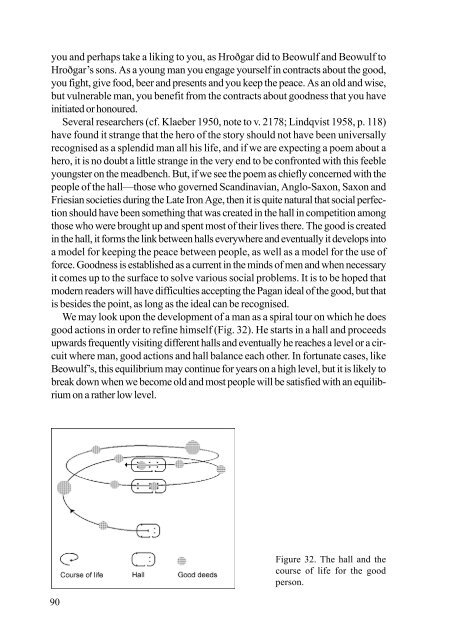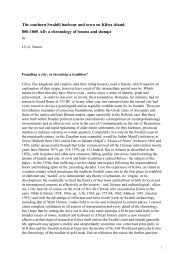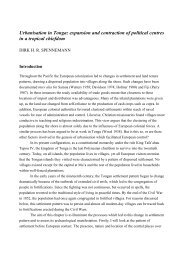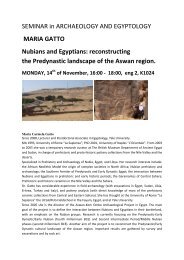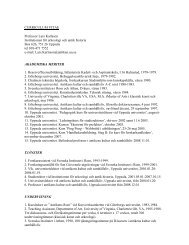Beowulf - Institutionen för arkeologi och antik historia
Beowulf - Institutionen för arkeologi och antik historia
Beowulf - Institutionen för arkeologi och antik historia
You also want an ePaper? Increase the reach of your titles
YUMPU automatically turns print PDFs into web optimized ePapers that Google loves.
you and perhaps take a liking to you, as Hroðgar did to <strong>Beowulf</strong> and <strong>Beowulf</strong> to<br />
Hroðgar’s sons. As a young man you engage yourself in contracts about the good,<br />
you fight, give food, beer and presents and you keep the peace. As an old and wise,<br />
but vulnerable man, you benefit from the contracts about goodness that you have<br />
initiated or honoured.<br />
Several researchers (cf. Klaeber 1950, note to v. 2178; Lindqvist 1958, p. 118)<br />
have found it strange that the hero of the story should not have been universally<br />
recognised as a splendid man all his life, and if we are expecting a poem about a<br />
hero, it is no doubt a little strange in the very end to be confronted with this feeble<br />
youngster on the meadbench. But, if we see the poem as chiefly concerned with the<br />
people of the hall—those who governed Scandinavian, Anglo-Saxon, Saxon and<br />
Friesian societies during the Late Iron Age, then it is quite natural that social perfection<br />
should have been something that was created in the hall in competition among<br />
those who were brought up and spent most of their lives there. The good is created<br />
in the hall, it forms the link between halls everywhere and eventually it develops into<br />
a model for keeping the peace between people, as well as a model for the use of<br />
force. Goodness is established as a current in the minds of men and when necessary<br />
it comes up to the surface to solve various social problems. It is to be hoped that<br />
modern readers will have difficulties accepting the Pagan ideal of the good, but that<br />
is besides the point, as long as the ideal can be recognised.<br />
We may look upon the development of a man as a spiral tour on which he does<br />
good actions in order to refine himself (Fig. 32). He starts in a hall and proceeds<br />
upwards frequently visiting different halls and eventually he reaches a level or a circuit<br />
where man, good actions and hall balance each other. In fortunate cases, like<br />
<strong>Beowulf</strong>’s, this equilibrium may continue for years on a high level, but it is likely to<br />
break down when we become old and most people will be satisfied with an equilibrium<br />
on a rather low level.<br />
90<br />
Figure 32. The hall and the<br />
course of life for the good<br />
person.


